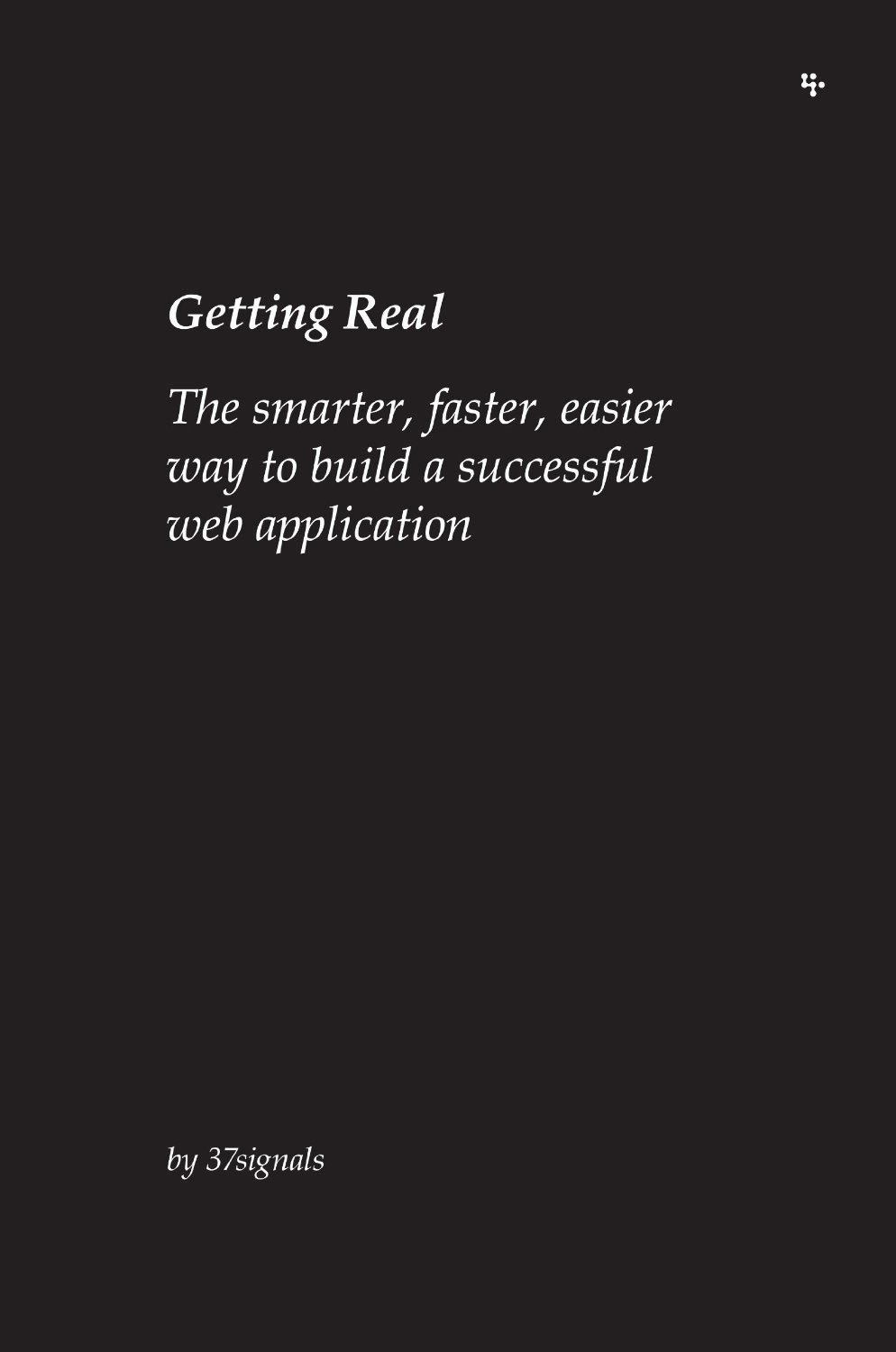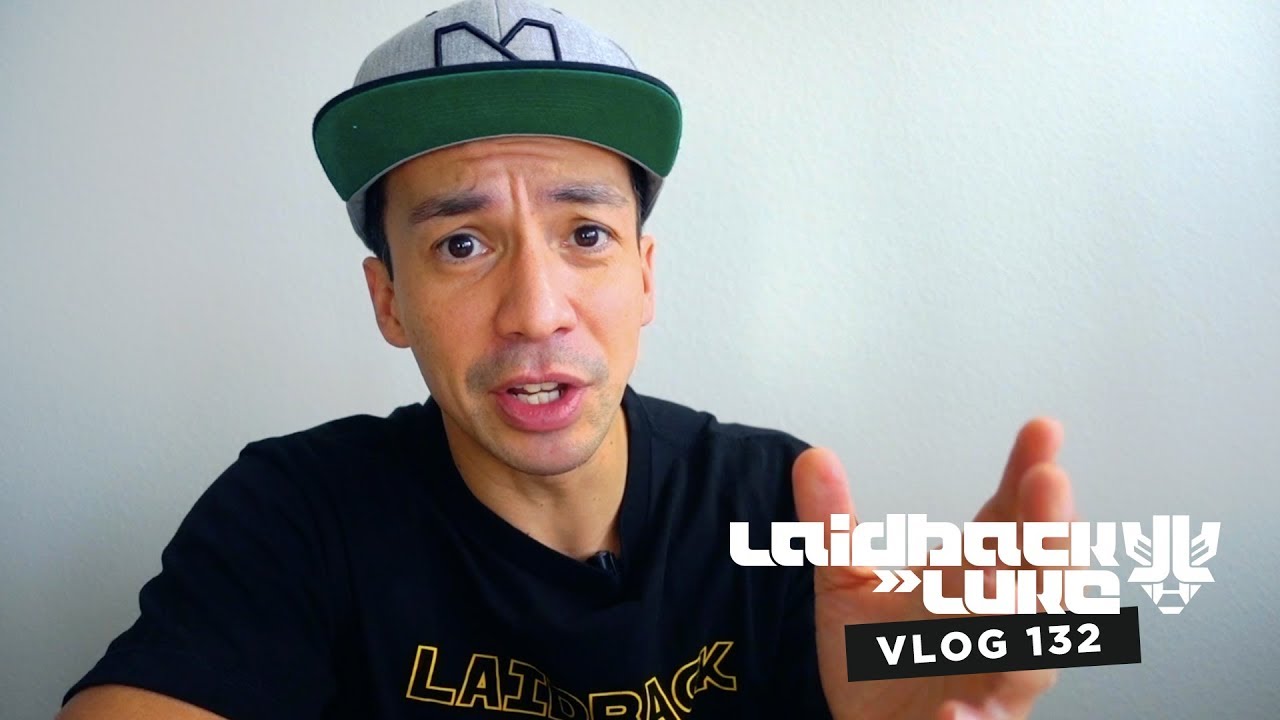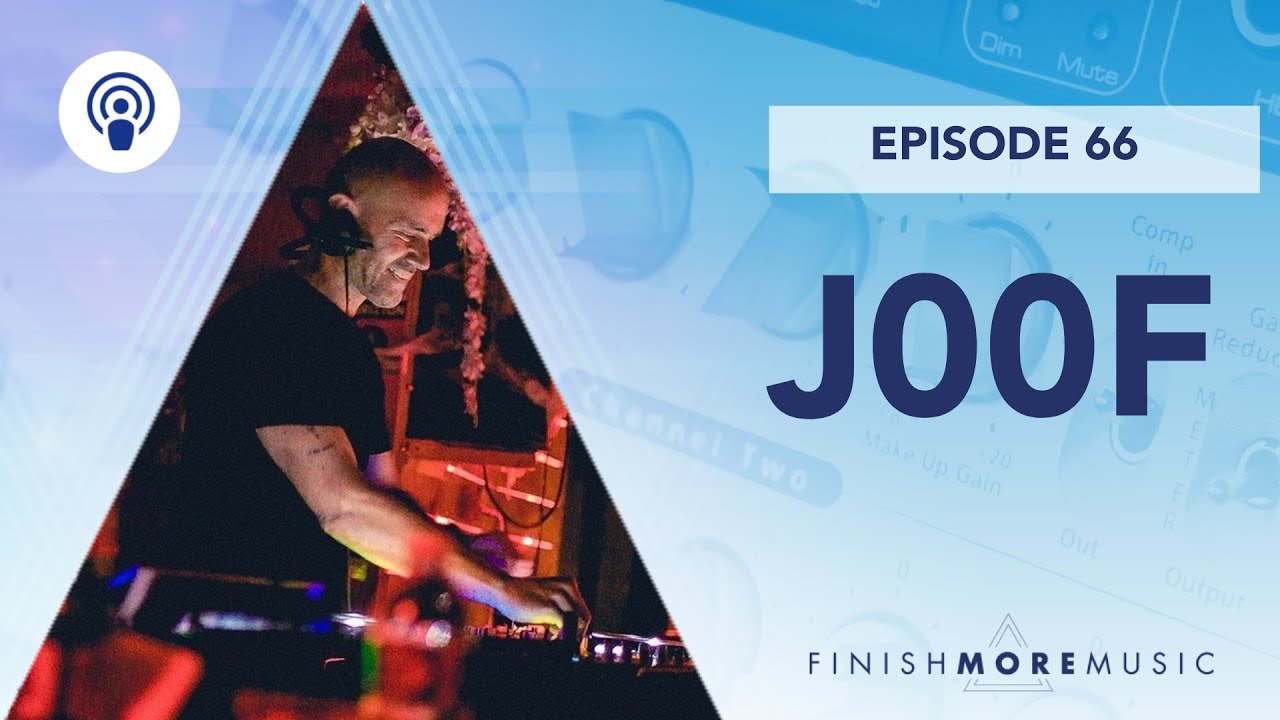Getting real
“Getting Real” by 37signals is an amazing book that I’ve just read, and I very recommend it whether you are an entrepreneur, web developer, or music producer like myself.
“While this book’s emphasis is on building a web app, a lot of these ideas are applicable to non-software activities too. The suggestions about small teams, rapid prototyping, expecting iterations, and many others presented here can serve as a guide whether you’re starting a business, writing a book, designing a web site, recording an album, or doing a variety of other endeavours. Once you start Getting Real in one area of your life, you’ll see how these concepts can apply to a wide range of activities.”

“Getting Real” is available on Amazon as well as a free web version.
I’d like to put some of my favourite quotes here in this post.
- A great way to build software is to start out by solving your own problems. You’ll be the target audience and you’ll know what’s important and what’s not. That gives you a great head start on delivering a breakout product. The key here is understanding that you’re not alone. If you’re having this problem, it’s likely hundreds of thousands of others are in the same boat. There’s your market. Wasn’t that easy? When you solve your own problem, you create a tool that you’re passionate about. And passion is key. Passion means you’ll truly use it and care about it. And that’s the best way to get others to feel passionate about it too.
- If your app doesn’t excite you, something’s wrong. If you’re only working on it in order to cash out, it will show. Likewise, if you feel passionately about your app, it will come through in the final product. People can read between the lines.
- Here’s an easy way to launch on time and on budget: keep them fixed. Never throw more time or money at a problem, just scale back the scope. There’s a myth that goes like this: we can launch on time, on budget, and on scope. It almost never happens and when it does quality often suffers. If you can’t fit everything in within the time and budget allotted then don’t expand the time and budget. Instead, pull back the scope. There’s always time to add stuff later — later is eternal, now is fleeting.
- The more massive an object, the more energy is required to change its direction. It’s as true in the business world as it is in the physical world. When it comes to web technology, change must be easy and cheap. If you can’t change on the fly, you’ll lose ground to someone who can. That’s why you need to shoot for less mass.
- For the first version of your app, start with only three people. That’s the magic number that will give you enough manpower yet allow you to stay streamlined and agile. Start with a developer, a designer, and a sweeper (someone who can roam between both worlds).
- Differentiate yourself from bigger companies by being personal and friendly. A lot of small companies make the mistake of trying to act big. It’s as if they perceive their size as a weakness that needs to be covered up. Too bad. Being small can actually be a huge advantage, especially when it comes to communication. Small companies enjoy fewer formalities, less bureaucracy, and more freedom. Smaller companies are closer to the customer by default. That means they can communicate in a more direct and personal way with customers. If you’re small, you can use familiar language instead of jargon. Your site and your product can have a human voice instead of sounding like a corporate drone. Being small means you can talk with your customers, not down to them.
- Don’t waste time on problems you don’t have yet. Do you really need to worry about scaling to 100,000 users today if it will take you two years to get there? Do you really have to hire eight programmers if you only need three today? People often spend too much time up front trying to solve problems they don’t even have yet. Don’t. Otherwise you may waste energy, time, and money fixating on something that never even happens.
- If you try to please everyone, you won’t please anyone. The customer is not always right. The truth is you have to sort out who’s right and who’s wrong for your app. The good news is that the internet makes finding the right people easier than ever. Know who your app is really intended for and focus on pleasing them.
- Take whatever you think your product should be and cut it in half. Pare features down until you’re left with only the most essential ones. Then do it again. Start off with a lean, smart app and let it gain traction. Then you can start to add to the solid foundation you’ve built.
“37signals” is the company that has developed Basecamp and few more web-services.
- Copywriting is interface design. Great interfaces are written. If you think every pixel, every icon, every typeface matters, then you also need to believe every letter matters. When you’re writing your interface, always put yourself in the shoes of the person who’s reading your interface. Do you label a button Submit or Save or Update or New or Create? That’s copywriting. Do you write three sentences or five? Do you explain with general examples or with details? Do you label content New or Updated or Recently Updated or Modified? Is it There are new messages: 5 or There are 5 new messages or is it 5 or five or messages or posts? All of this matters.
- As soon as you can, use real and relevant words. If your site or application requires data input, enter the real deal. And actually type in the text — don’t just paste it in from another source. If it’s a name, type a real name. If it’s a city, type a real city. If it’s a password, and it’s repeated twice, type it twice. Do as your customers do and you’ll understand them better. When you understand them better, and feel what they feel, you’ll build a better interface.
- If an app launches in a forest and there’s no one there to use it, does it make a noise? The point here is that if you launch your app without any pre-hype, people aren’t going to know about it. To build up buzz and anticipation, go with a Hollywood-style launch: 1) Teaser, 2) Preview, and 3) Launch.
- Blogging can be more effective than advertising. Advertising is expensive. And evaluating the effectiveness of various types of advertising can wind up being even more expensive than the advertising itself. When you don’t have the time or money to go the traditional advertising route, consider the promote-via-blog route instead. Start off by creating a blog that not only touts your product but offers helpful advice, tips, tricks, links, etc.
- Get advance buzz and signups going ASAP. Get some sort of site up and start collecting emails as soon as possible. Pick your domain name and put up a logo and maybe a sentence or two that describes, or at least hints at, what your app will do. Then let people give you their email address. Now you’re on your way to having a foundation of folks ready and waiting to be notified of your launch.
- Share your knowledge with the world. And when the subject you’re teaching is your app, it serves a dual purpose: you can give something back to the community that supports you and score some nice promotional exposure at the same time. As a promotional technique, education is a soft way to get your name — and your product’s name — in front of more people. And instead of a hard sell “buy this product” approach, you’re getting attention by providing a valuable service. That creates positive buzz that traditional marketing tactics can’t match. Teaching is all about good karma. You’re paying it forward. You’re helping others. You get some healthy promotion. And you can even bask in a bit of nobility.
- Hire good writers. If you are trying to decide between a few people to fill a position, always hire the better writer. It doesn’t matter if that person is a designer, programmer, marketer, salesperson, or whatever, the writing skills will pay off. Effective, concise writing and editing leads to effective, concise code, design, emails, instant messages, and more. That’s because being a good writer is about more than words. Good writers know how to communicate. They make things easy to understand. They can put themselves in someone else’s shoes. They know what to omit. They think clearly. And those are the qualities you need.


